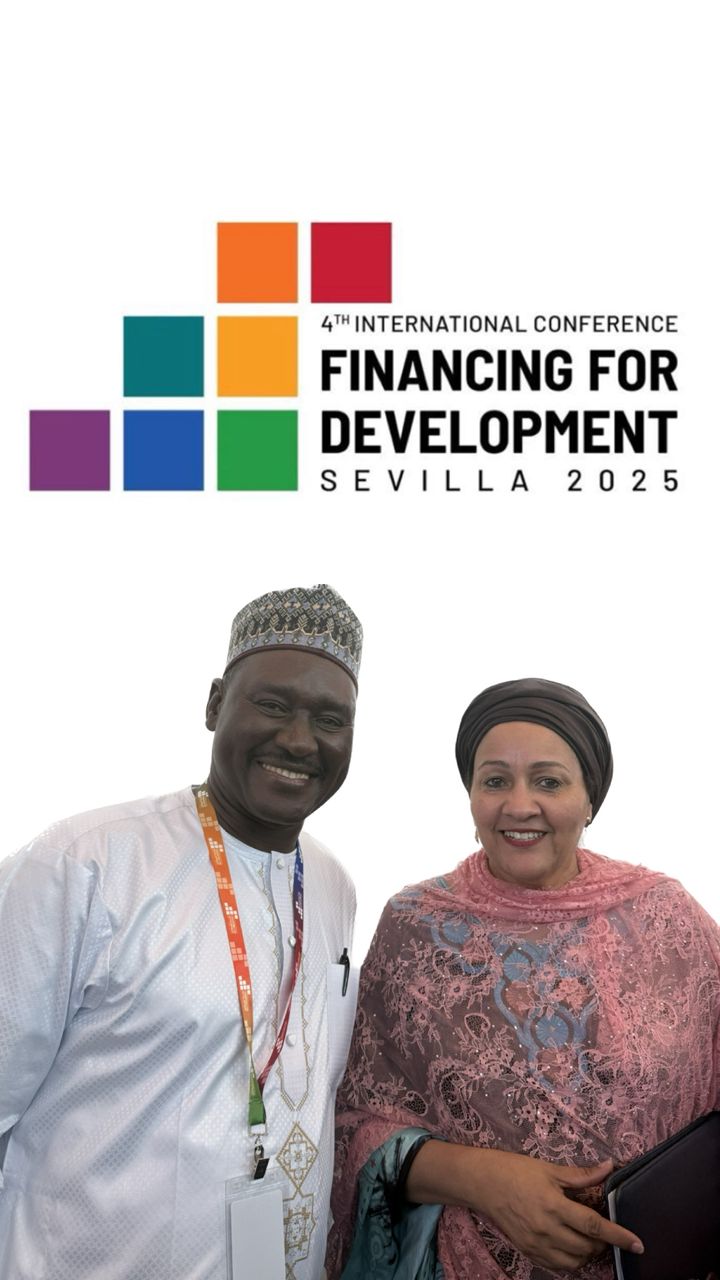By Abdullahi Yusuf
The Civil Society Legislative Advocacy Centre (CISLAC), has called for the cancellation of illegitimate and dubious debts, urgent reform of global financial institutions and a strengthened legislative role in financing for development and accountable spending.
The Executive Director of the group,Comrade Auwal Ibrahim Musa (Rafsanjani), made the call in a remark as civil society organisations, government officials and global development advocates gathered in Sevilla, Spain, for the Financing for Development Conference, as contained in a statement signed by him.
Rafsanjani, who also heads Transparency International Nigeria, emphasised the need for African lawmakers to be more actively engaged in shaping and overseeing financial decisions that affect national development.
“Legislators must not be sidelined. Legislators have the constitutional mandate to approve budgets, approve loans, monitor debt agreements, and ensure that public and borrowed funds are used transparently and equitably,” he said.
The CISLAC executive director also demanded for the total cancellation of Debts by Odious or Fraudulent Origin (DBOs)—debts incurred without public consent or accountability.
“These debts are unjust. Their enforcement continues to stall development, burden future generations, and weaken national sovereignty,” Rafsanjani declared.
CISLAC echoed Christian Aid’s call for the UK government to legislate limits on private creditors suing sovereign governments in UK courts, as most Nigerian private debt is governed under UK law.
Rafsanjani further supported demands for mandatory private creditor participation in debt renegotiation processes, including through a UN debt workout mechanism.
The statement also aligned with Oxfam’s and Tax Justice Africa’s advocacy for increased concessional financing from wealthy nations and an end to fossil fuel subsidies that worsen climate impacts for vulnerable communities.
On the issue of taxation, Rafsanjani emphasised the importance of legislative action to close tax loopholes, prevent illicit financial flows, and ensure compliance among multinationals and the wealthy elite.
“Lawmakers must strengthen financial integrity laws, demand public access to beneficial ownership registers, and enforce stronger oversight of professional enablers who facilitate tax evasion and money laundering,” he said.
He noted that robust public financial management, transparency in debt contracting, and oversight across all stages of the budget process are critical to safeguarding public funds and maximising development impact.
The executive director then called for the democratisation of international financial institutions such as the IMF and World Bank, stating that they are currently dominated by powerful nations and lack inclusive representation.
“We need a global financial system where African voices matter, and where oversight is not a formality but a right,” he said.
He stressed that legislative institutions in Africa must be empowered to hold both domestic and international actors accountable, enhance transparency in debt negotiations, and prioritise spending in critical sectors such as climate, health, and education.
“Responsible and effective financing for the Sustainable Development Goals (SDGs) in Nigeria and across Africa will help address poverty, reduce inequality, and ensure access to justice, peace, and inclusive institutions,” Rafsanjani said.
He urged the Nigerian government to ensure full coordination and implementation of the conference resolutions, with the inclusive participation of all stakeholders including civil society to guarantee a holistic and impactful execution.
“We are here in Sevilla to push for a fairer global system, stronger legislative engagement, and sustainable solutions that reflect the will and welfare of our people,” he added.
The conference continues with high-level dialogues on debt justice, climate finance, tax equity, and inclusive economic transformation.
It features active participation from African civil society, parliamentary and legislative representatives, and Transparency International chapters across the world.
The delegation is led by Maíra Martini, Chief Executive Officer (CEO), who is demanding more transparent and accountable frameworks for debt contracting and management as critical measures for safeguarding public resources and promoting long-term debt sustainability.


